ABOUT Michael A. Di Giovine
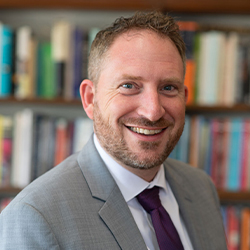
I am Professor of Anthropology at West Chester University of Pennsylvania (USA), and an Honorary Fellow in the Department of Anthropology at the University of Wisconsin-Madison. I am also the Director of WCU’s Museum of Anthropology and Archaeology, the Museum Studies Program, and a popular Ethnographic Field School in Perugia, Italy, which is run in partnership with the Umbra Institute. I earned a B.S. cum laude in Foreign Service from Georgetown University, an A.M. in interdisciplinary Social Sciences from the University of Chicago, and a Ph.D. from the University of Chicago with a dissertation examining pilgrimage, heritage and revitalization associated with the Catholic cult of St. Padre Pio of Pietrelcina.
A former tour operator whose work engages with cultural heritage, tourism/pilgrimage, and foodways, I have appeared in numerous international news outlets such as National Public Radio, Australian Public Radio, The Economist, La Cucina Italiana, National Catholic Register, Atlas Obscura, and National Geographic. I’ve also been honored to give keynote speeches for the United Nations World Tourism Organization in Hamedan, Iran (2018), the European Union in Sofia, Bulgaria (2018), World Heritage UK (2017), ICOMOS Florence (2016), the Sorbonne (2014), and at various conferences and public lectures in the United States and abroad.
As the author of The Heritage-scape: UNESCO, World Heritage and Tourism, I have a longstanding research interest in cultural heritage designation and preservation, particularly as it pertains to UNESCO’s World Heritage program. An expert member of ICOMOS and a consultant for museums and heritage sites, I have also served on the American Anthropological Association’s Task Force on Cultural Heritage (2013-2015). I am also interested in the ways in which intangible cultural heritage practices surrounding food foster identity formation and sustainable development, and have co-edited Edible Identities: Food as Cultural Heritage and the forthcoming Routledge International Handbook on Food and Cultural Heritage. Through my field school, I also am examining the ways in which sustainable food systems are markers of cultural heritage and identity-building in Central Italy, particularly in the wake of the devastating series of earthquakes in 2016.
Stemming from my work in the tourism industry, I’m highly involved in promoting and furthering anthropological tourism research. I am the longstanding Convenor of the Anthropology of Tourism Interest Group at the American Anthropological Association, an organization of nearly 1000 anthropologists dedicated to the holistic and critical heritage and tourism research. With a strong belief in the benefits of interdisciplinarity in tourism scholarship, I am a founding member of the Tourism-Contact-Culture Network, I sit on the academic board of the International Journal of Religious Tourism and Pilgrimage, and I serve as Book Reviews Editor for the Journal of Tourism and Cultural Change. I am particularly proud to be the series editor of The Anthropology of Tourism: Heritage, Mobilities and Society with Lexington Books (an imprint of Rowman and Littlefield Publishing), and its Author Conversation webinar series.
The co-editor of the volume, The Seductions of Pilgrimage, I bridge these themes together through a longstanding ethnographic research project focused on pilgrimage, devotion and tourism development in the cult of Catholic stigmatic and saint Padre Pio of Pietrelcina, known as the “world’s most popular saint.” Traveling with Irish, Italian and American pilgrims, I have conducted ethnography in Pio’s shrine of San Giovanni Rotondo, at his ancestral hometown of Pietrelcina, in Boston, and at the National Center for Padre Pio in Barto, PA. I also conducts research on virtual pilgrimages and extended reality in tourism and heritage preservation.
A firm believer in the benefits of education abroad, I co-edited the volume Study Abroad and the Quest for an Anti-Tourism Experience, and I value close collaboration with WCU’s Global Engagement Office, with which I collaborate to enhance the sustainability of the university’s programs. I also co-instruct courses on sustainable food systems, the ethics of cultural heritage, the anthropology of tourism, museum curation, ethnographic methods, and introduction to cultural anthropology. I believe in West Chester University’s teacher-scholar model of instruction and enjoy including students in his research whenever possible.
As the founding Director of the Museum of Anthropology and Archaeology, I have been fortunate for West Chester University’s support in building a high quality teaching museum. The museum curates 300,000 artifacts and teaches an interdisciplinary group of students the ins and outs of museum management, collections care, and curation. Every year, I oversee the creation of a major student co-curated exhibition, which includes a 3D virtual component and a published catalog. I’m so proud of my students, who have gone on to pursue advanced graduate degrees in anthropology and museum studies; who have found jobs as ethnographers, consultants, museum professionals and cultural resource managers; and even some who have been so taken by their study abroad experiences in Italy that they have started careers and families there!
Hear about how I integrate my scholarship and teaching at WCU in this radio interview, Passing Time with Dr. Rob.
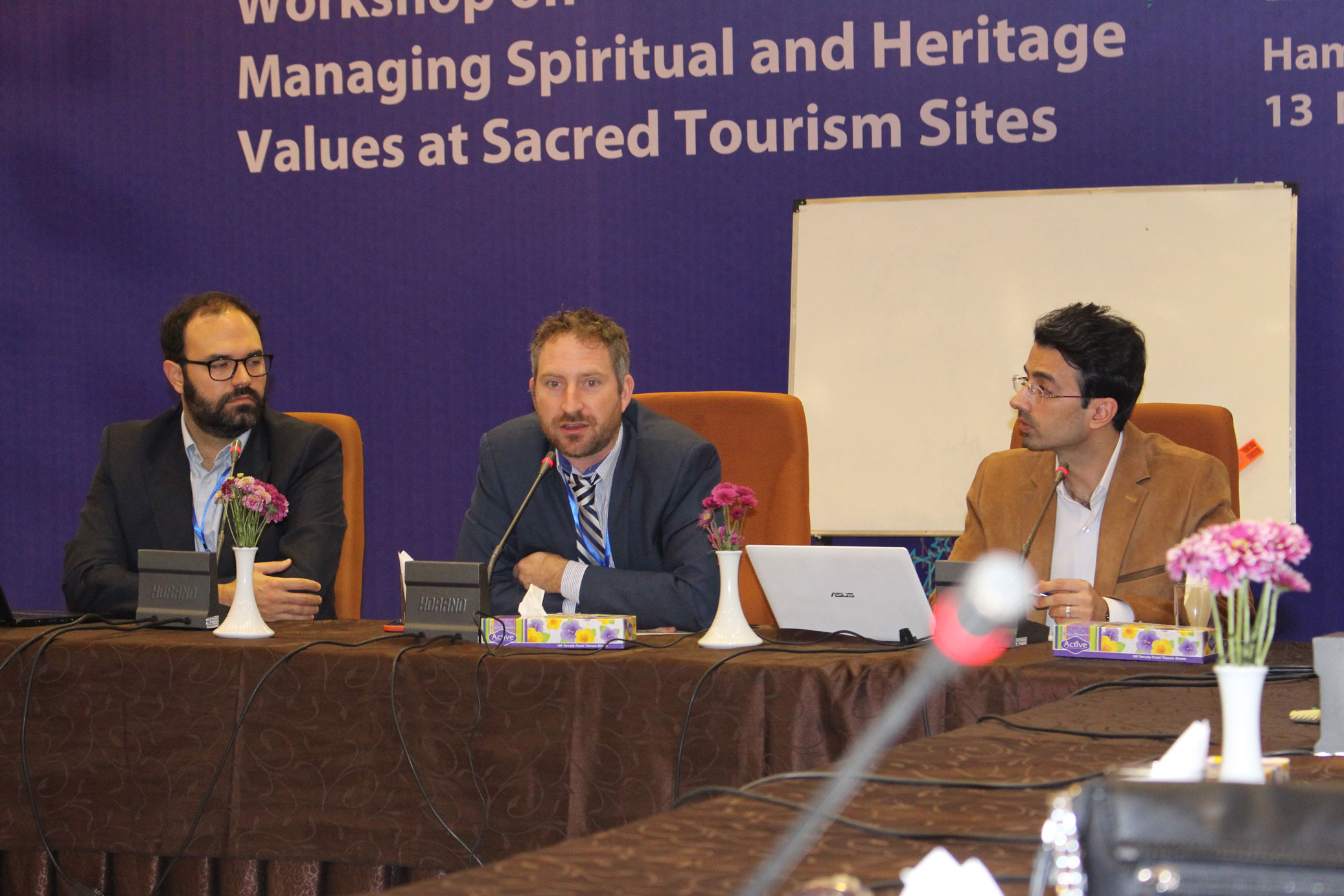
Leading a workshop on pilgrimage in Hamedan, Iran (2018) with Rob Pennoyer (left) and Dr. Mohamad Sharifi (right)
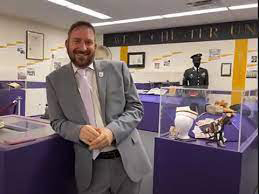
In the WCU 150: History and Heritage sesquicentennial exhibition (2021)
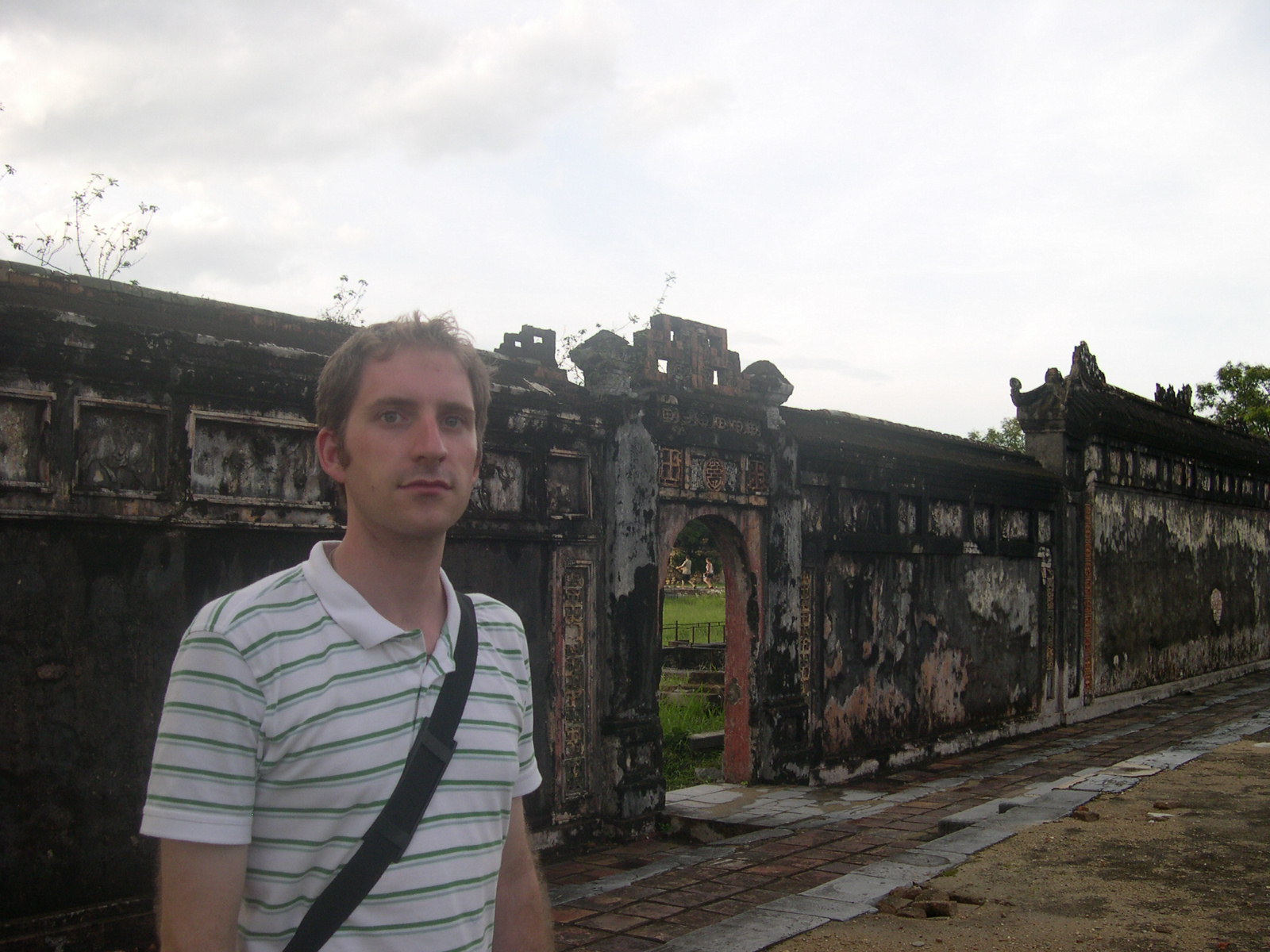
Conducting fieldwork in Hue, Vietnam, 2006.
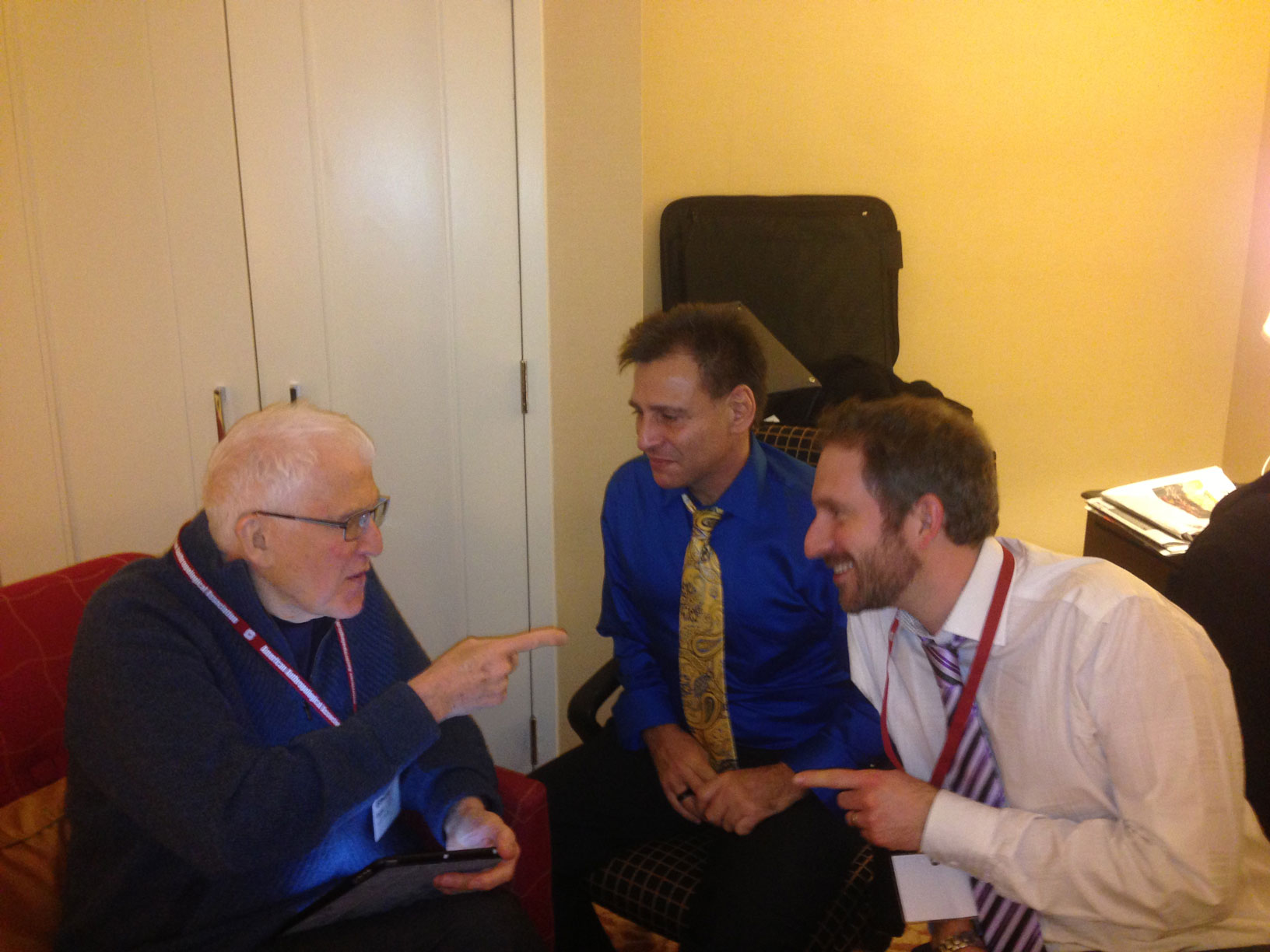
Interviewing renowned anthropologist of tourism, Edward M. Bruner (left) with Quetzil Castaneda (center), November 2014.
